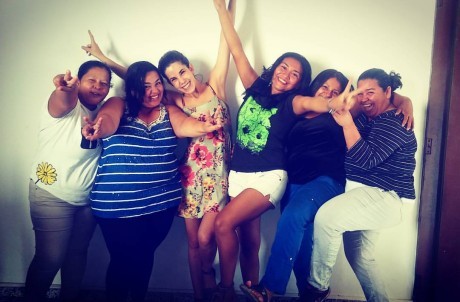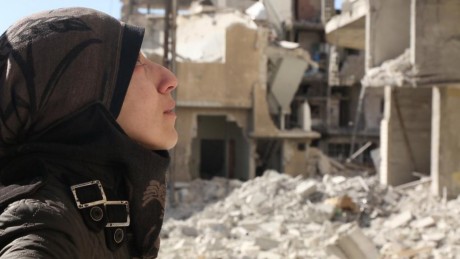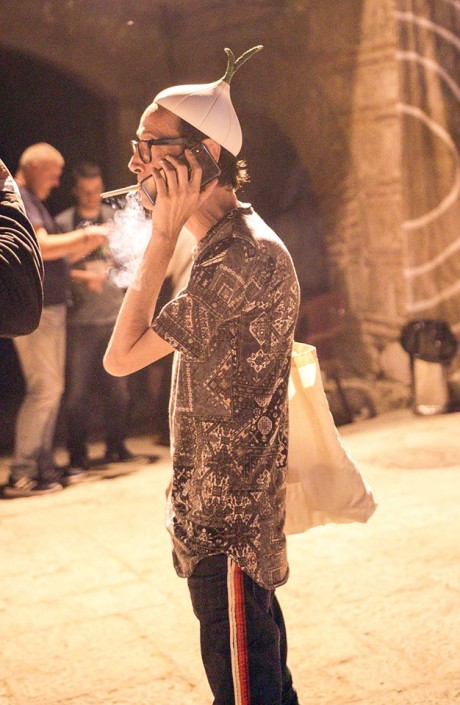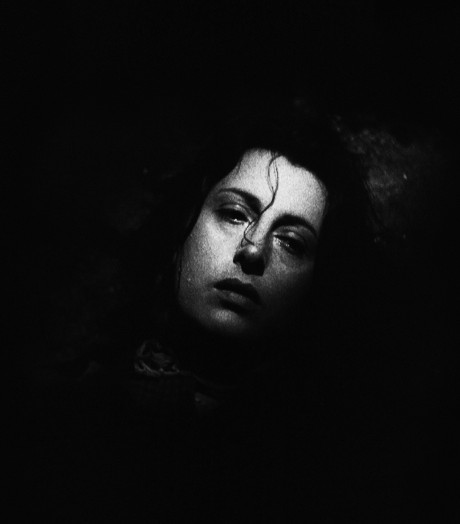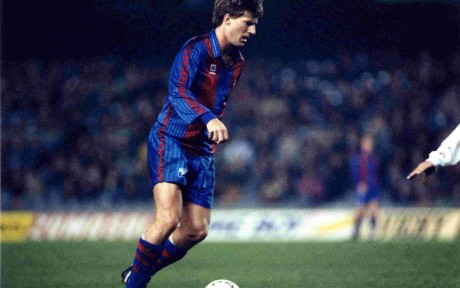


Docs & Talks 2020 /3 Born in Evin
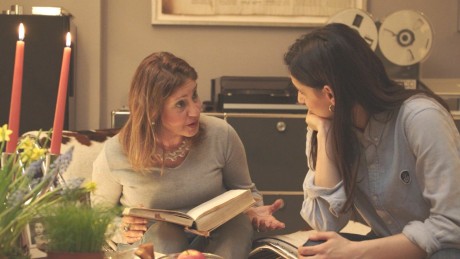
Maryam Zaree: Born in Evin. “Personal. Touching. Director was born in an Iranian prison… Saw it in Sarajevo.” (Tue Steen Müller)
Det begynder med en nynnen, en vuggesang tror jeg, en mor til sit lille barn. En stemme lægger sig over, en fortællende kvindestemme, men en anden end den nynnende, det er jeg sikker på, en stemme som ganske kort gør rede for filmens arbejdsopgave som er en udredning, en undersøgelse af undertrykkelsen, torturen, henrettelserne dengang, begivenheder som fortrænges af vidnerne, de overlevende politiske fanger, men i detaljer slipper ud i sproget og tilsammen tegner et for mig et forfærdende billede af livet i fængslet Evin i Teheran i 1980-erne, de hårde år under og lige efter krigen med Irak.
Det er så mærkeligt. Maryam Zaree er en aldeles charmerende fortæller på lydsiden og medvirkende i hver eneste filmscene. Måske var det hendes mor jeg hørte i titelsekvensen, og hun var i krybben, men jeg ser hende først som vel seksårig ivrig genert i en privat familiefilm der overstyret i lyden er klippet lige på efter titelskiltet, et genert barn som overspiller sin rolle, introducerer sig selv: ” Maryam Zaree, 2. klasse i skolen, Frankfurt… med et blik til moderen… skal jeg også sige Tyskland?” Netop så charmerende som hun herefter som voksen og empatisk filminstruktør er i billedet, i scenen, spørgende, lyttende, reflekterende filmen igennem. Hun er charmerende fra den første voice over i filmens nutid til det første billede i første scene. Den voksne kvindes stemme, den helt unge kvindes, faktisk er det barnets stemme, barnet som snart vil være voksen.
Og straks introduceres moderen – og hun er selvfølgelig fuldstændig charmerende – som ung psykologi/psykiatri studerende i første scene og glad smilende til sin datter og deres charme og dennes lethed bærer filmen igennem som ungt mesterværk også i dette tungt fortrængte emne som filmen og de skal i gang med.
De to er politiske flygtninge fra Iran, de taler persisk med hinanden og moderens på én gang smilende og gribende fortælling om deres ankomst juleaften 1989 til Frankfurt finder sted under hendes pressemøde på jernbanestationen i Frankfurt som valgt kulisse, hun med sit lille barn på armen, fortæller hun livligt og berørende alle, landede dengang i en tilsyneladende mennesketom by med alle butikker og restauranter lukket -efterladende sin mand i det frygtelige Evin. Jeg ser hende nu foran mikrofonerne og notatblokkene på journalisternes knæ med tydelig politisk gennemslagskraft meddele at hun som den første med flygtningebaggrund som sit partis kandidat stiller op til valget af borgmester i Frankfurt. Hendes sikre charme og tydelige kompetence understreges af klapsalver under et efterfølgende møde med partimedlemmer tror jeg det er. Her ganske få scener inde i filmen ved jeg at det er gået godt for de to frysende flygtninge på banegården.
2
I begyndelsen ved moderen imidlertid ikke at datteren professionelt samler materiale som disse tv-klip til en dokumentarfilm, hvor også private film og fotografier og senere nye optagelser med en række nye vidner indgår. Hun ringer senere i filmens fortælling til datteren nu langt inde i sit projekt på optagelser i Paris og siger at hun er vred og beder datteren komme hjem på sit kontor til en samtale! Maryam tager den samtale på moderens smukt moderne indrettede privatklinik for klinisk psykologi og psykiatri, de er begge stærke…
3
De er på ferie sammen, alene de to, et sted med svømmebassin, moderen ser i den situation et tidligt klip til filmen, hun er våd endnu, svøbt i håndklæder, blød og dybt bevæget, men tavs…
Maryam forsøger at sætte sig i moderens sted, prøver til et arrangement at tage en chador på, opgiver med en serie begrundelser. Sidder med et pasfoto af moderen som helt ung i chador, sådan så hun ud da hun var gravid…
Still. Filmens nutid. De er hjemme hos moderen. Det er en iransk festdag, og inde i den tradition tager moderen den persiske samling af digte frem for at læse fremtiden, lugte sig til digtet. Det bliver moderens yndlingsdigt hun glad slår op på og læser, en poesiens overvejelse og sikre håb og fortrøstning…
4
Datterens og moderens historie sammen er filmens øverste og gennemgående lag, datterens og faderens historie føjer sig til og datterens research med rejser og samtaler med vidner bliver fortællingen i filmens nutid, fortællingen hvor den forfærdende sandhed om fængslet og fødslen der og de daglange torturfyldte afhøringers formål tilsyneladende ikke er oplysninger først og fremmest, men mentale og fysiske nedbrydninger af politiske dissidenter som netop holdes i live, så de kan løslades som levende advarsler til deres organisationer. Dette lag er i minimale brudstykker filmens endelige stærke fortælling om Maryams to år i fængslet, den fortælling hun vil skabe af den uforståelige tavshed, hun vil opklare, rapporten om torturens egentlige infame væsen.
Maryam Zaree, 2019 / Engl. tekst / 95 min. / 150 min. inkl. samtale / Cinemateket, Købenavn / torsdag, 30. januar 17.00
https://www.dfi.dk/cinemateket/biograf/filmserier/serie/docs-talks-30-januar-5-februar-2020
DOCS & TALKS writes: TORTURE & TRAUMA / BORN IN EVIN W. DIRECTOR PRESENT
Maryam Zaree, 2019 / Engl. text / 95 min. / 150 min. incl. debate / THUR 30/01 17:00
We open the festival with the Iranian-German director Maryam Zaree’s very personal story about growing up as a child of parents who were political prisoners in Iran. As an adult, Maryam finds out that she was born in the notorious Evin prison in Tehran. Her mother fled to Germany with her, when she was little, and has never since wanted to talk about the past. As Maryam begins to experience panic attacks, she tries to make her mother break the silence and answer the many questions that haunts her. This deeply moving documentary was apllauded with standing ovation after the Berlin premiere last year where it was given the Compass-Perspektive-Award for Best German Film.
After the film we will talk about some of the mechanisms and patterns associated with collective violence and its aftermath together with the director Maryam Zaree, psychologist at Doctors Without Borders Mozhdeh Ghasemiyani and Senior Researchers at DIIS Robin May Schott and Lars Erslev Andersen. They will discuss how trauma is passed on to the next generation, and what happens when you break the silence, both on an individual level, in the family, and on a larger scale in society, in the form of truth commissions.
The event is presented in partnership with the Austrian Embassy and the Goethe-Institut Dänemark.
After the event the Austrian Embassy and DIIS host the opening reception of the festival in the Asta Bar.
Programme and tickets:
https://www.dfi.dk/cinemateket/biograf/filmserier/serie/docs-talks-30-januar-5-februar-2020
